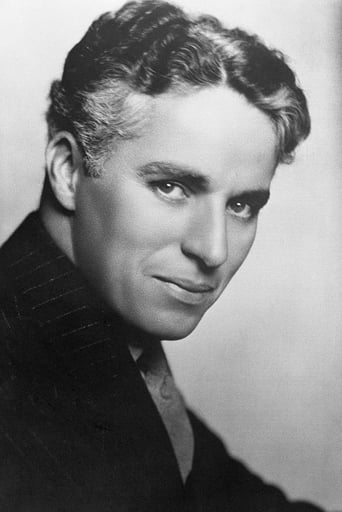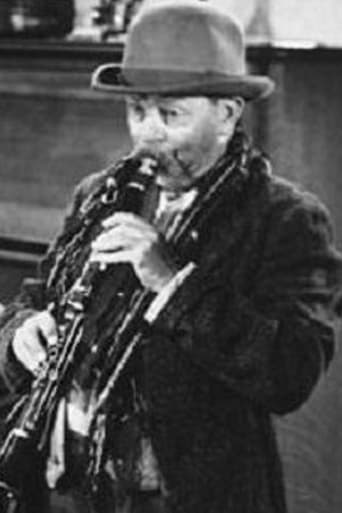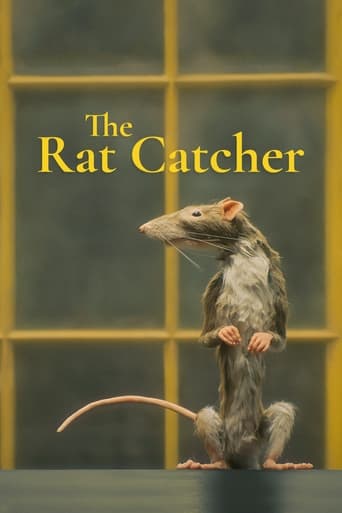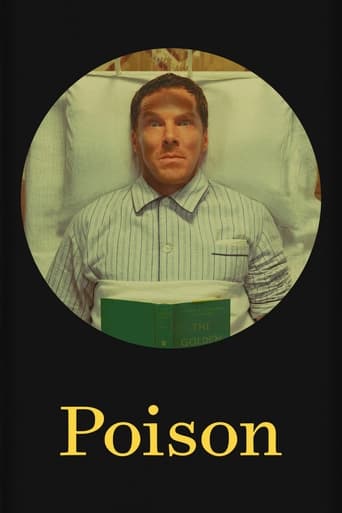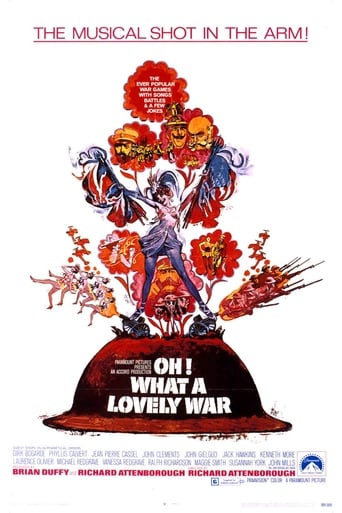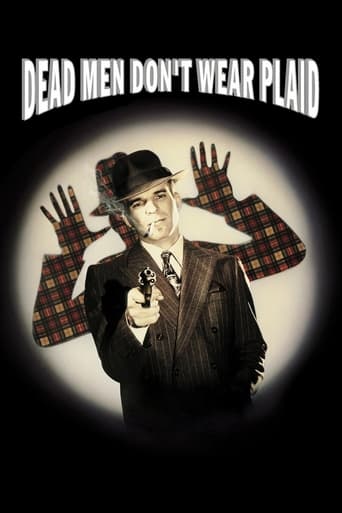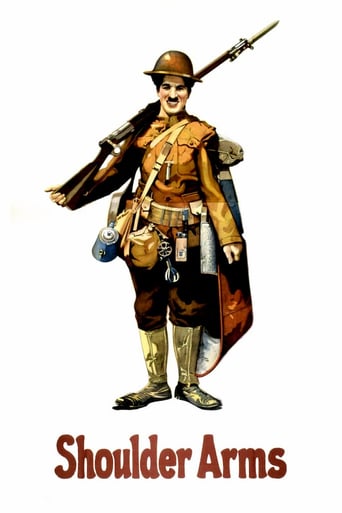
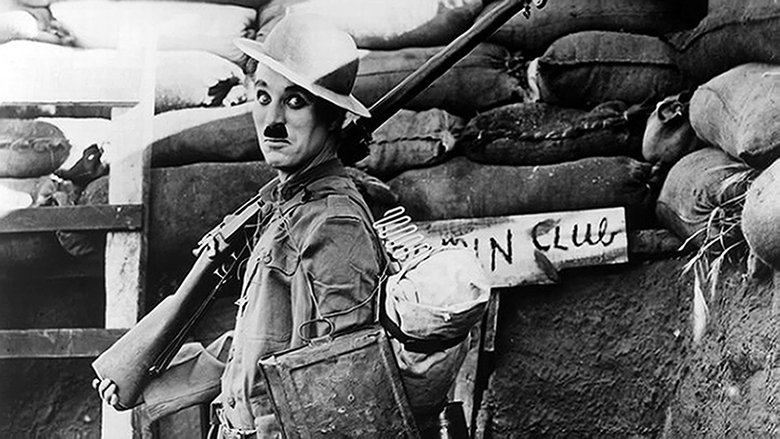
Shoulder Arms (1918)
An American doughboy, stationed in France during the Great War, goes on a daring mission behind enemy lines and becomes a hero.
Watch Trailer
Cast


Similar titles
Reviews
Released less than a month before the Armistice of November 11, 1918, Shoulder Arms is an amazing First World War farce. As part of the "Awkward Squad", Charlie finds himself in boot camp dreaming of action on the front lines. Dug in and longing for home, his character experiences the miserable conditions in the trenches while defeating the enemy with unusual tactics which include lobbing Limburger cheese and infiltrating German lines disguised as a tree. This is a daring comedy in which Chaplin remarkably finds a balance between a parody of the events, and an homage to the soldiers who he was portraying.
PERHAPS OFFERING US a glimpse of what would come some 22 years later and in the spectre of yet another World War, SHOULDER ARMS (Chaplin/First National, 1918)makes extensive ridicule of "the Huns" as a central theme of this short feature comedy/farce. IN VERY MUCH the same vein as his lampooning of Hitler as Adinoid Hynkel in THE GREAT DICTATOR (Chaplin/United Artists, 1940), the 'Little Tramp' gives it to the entire German Army right up to Kaiser Wilhelm, double barreled.BY THIS TIME, Charlie had moved on from doing short subjects and into features. At about 45 minutes in length, it is not nearly as deeply developed nor as critically acclaimed as would be titles such as CITY LIGHTS (1931), MODERN TIMES (1936) or THE GOLD RUSH (1925 & 1942*).THE LITTLE TRAMP character is transported from the streets of the big city to Army Boot Camp. As to be expected, Charlie is out of step, awkward and not a very good prospect for combat in France. Being consistently out of step, marching in an unorthodox toes out manner, his relationship with the Drill Sergeant would set the standard for all to follow; from Abbott & Costello in BUCK PRIVATES (Universal, 1941) to TV's GOMER PYLE, USMC.LIFE IN THE trenches is portrayed in a very realistic manner; although writer/director Chaplin does manage to give it all a light, comic spin. Much of the laughter is generated by what we properly call "Black Humor." The union of laughter and tragic reality is unavoidable and this film, SHOULDER ARMS manages to pull it all off rather gracefully.AS HAD BEEN the case ever since Charlie's alliance with First National Pictures, he practiced a sort of nepotism in featuring his older half-brother, Sydney Chaplin. Syd, himself a veteran of the English Music Hall, proved to be more than adequate as a supporting player and did go onto a film career in his own right.MADE AS HIS on film contribution to the War effort*, the scenes and locations were most convincingly realistic. His inclusion of his real life protégé and 'main squeeze', Miss Edna Purviance,as his French Peasant Girl/Love Interest added a needed touch of relief from the story of the grim realities of modern warfare.ALTHOUGH THIS PARTICULAR picture retains a sort of legendary status today, it almost missed the War altogether. SHOULDER ARMS was released on October 20, 1918; being a mere 22 days before the declared armistice on November 11, 1918. It was on the 11th hour of the 11th day of the 11th month, for the ending of "the War to end all Wars!" NOTE: * We find two years listed for THE GOLD RUSH; those being both 1925 and 1942. The two dates are derived from Chaplin's re-releasing a "Director's Cut" in 1942, which also included an original musical score and narration by Chaplin (who else?).
I'm going to get straight to the plot with this film. Private Charlie Doughboy (Charlie Chaplin) is in boot camp in the US Army. Then he is sent to the Western Front in France. From there it's normal trench life. Until his platoon goes across no mans land and captures the German trench. From there Private Doughboy goes on an adventure. Disguised as a tree he saves a fellow soldier (Syd Chaplin) from being executed. Then he meets a girl (Edna Purviance) who ran an inn that was destroyed from artillery fire. Purviance is arrested and taken to a German officer but Private Doughboy saves her again and his comrade from earlier and even takes Kaiser Whilhelm (Syd Chaplin) prisoner. And then as it turns out it was all a dream. Although this was not the most correct representation of the trenches as they were way too clean in this film I still find it to be very enjoyable. I say go see this one.
Pretty funny stuff. Charlie was still working towards his peak when he made this rather daring short about soldiers in the trenches of World War One. Daring because, after all, the war was still going on and this was a comedy about a serious business.The gags are amusing without being either hilarious or tear jerking. One successful scene follows another, as Chaplin and his comrades try to sleep in a bunker that is knee deep in water. (That's where we got the term "trench foot" from.) Probably the most ludicrous episode has Chaplin disguised as a tree and foiling any number of German soldiers as they try to execute an Allied soldier caught behind the lines. Edna Purviance, Chaplin's main squeeze at the time, is a woman who cooperates with the Americans and is saved from execution too.Chaplin would go on to do funnier and more ambitious things but this is better than most of his shorts during this early period.



